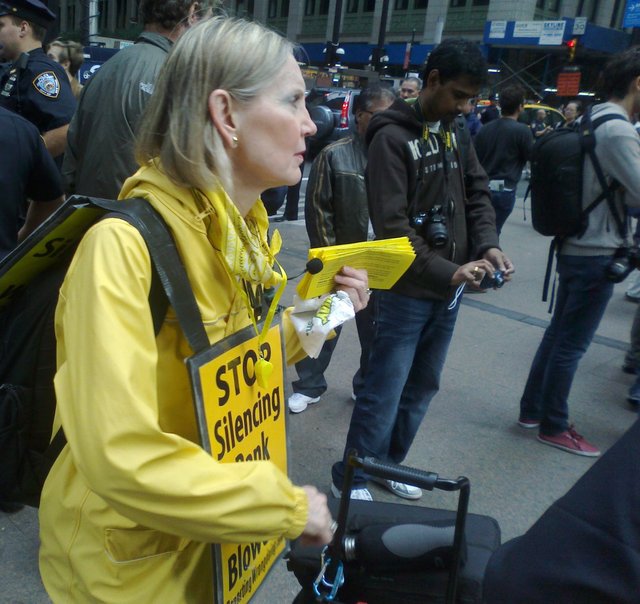Throughout the Western world, there is a growing feeling of discontent, especially among people of the middle class. Many feel that the system doesn't work in their favour. Some say that it is rigged. Others say that it is simply broken. One way or another, it just feels unfair.
Many have lost trust in the system entirely and think that democracy itself doesn't work. But I believe that those who think so are going too far. True. The system is broken and sometimes even rigged. Yet “we the people”, can make a great difference. We just have to understand what is wrong, not with the system, but with our own perspective.
There is a pedestrian bridge in Jerusalem, that is commonly known as “the error bridge”. It was meant to enable the students of a local high school, to safely cross one of the busiest roads in the city. The problem is, that the bridge was built on the wrong side of a large junction, and is therefore completely useless.
How can this kind of mistakes happen? There were hundreds of people involved in the design and construction of the bridge. How come no one noticed that the bridge was built on the wrong side of the junction?
The reason is probably that there was nobody involved, from the neighborhood that the bridge is supposed to serve. Had there been one person involved, no matter in which role, that was a stakeholder in the outcome of the project, he or she would surely notice that something is wrong.
Instead of asking whether democracy works in principle. Maybe we should ask how well a specific democracy performs. It looks like a very tough question to answer, but that is only so if we focus on the mechanisms of the establishment instead on the essence of democracy, which is in fact very simple:
We the people, are the sovereign
“We the people” are the rulers of the state. We delegate some of our authority to administrative systems.
But, and this is crucial to understand
Only some of our authority is delegated and as every manager knows (or at least should know), you can delegate authority but not responsibility. The authority of those in power come from us, and we remain responsible.
All of us.
We are all responsible and we give our power to them. This is the crucial difference between a democracy and a monarchy. Monarchs look at the state as their enterprise. They think they can pick and choose their citizens, divide them into classes or organize them in all kinds of artificial ways. There is connecting line between Louis the 14's “L’etat se moi!” to Pol Pot’s decision that he only needs a small portion of his citizens and he should execute the rest. For a monarch, even a more benevolent one, the citizens are a burden. Something he or she should keep under their check.
In a democracy, on the other hand, everyone are first and foremost stakeholders. No matter what is our position in life, we are at that position. When our individual point of views are combined together, they create a mesh that covers everything human, and if some of us are not bringing their perspective into the common consideration than it is lacking and flawed. So how well does a democracy performs? The answer is that it is in a direct proportion to the level of participation of its citizens.
Many of us feel that we don't get our fair share at life. We are responsible citizens, go to work everyday, pay our taxes, obey the law. But still, two working parents can hardly make ends meet. It’s not fair, especially when it looks like no good lazy idiots, immigrants and other bozos are living on our expanse. But are they really?
We can't possibly know, or care about, every person in our country as much as we know and care about our immediate circle. We have every right to prefer the interests of our families and communities over those of strangers, but when we elect a government, it is wrong of us, as the citizens of a democracy, to expect it to do the same. Think about it: If we allow our.government to prefer the interest of only a certain group of people, isn't it completely expected that the people in power will prefer the interest of their personal circles, instead of ours?
Every citizen in a democracy is a stakeholder and each has an equally important point of view. If “we the people” will not demand from ourselves and from our elected government to enable and at the same time, demand from all citizens to take their fair share of the social burden, then it’s no surprise that we will feel that the system is broken.

re tool the systems
Downvoting a post can decrease pending rewards and make it less visible. Common reasons:
Submit